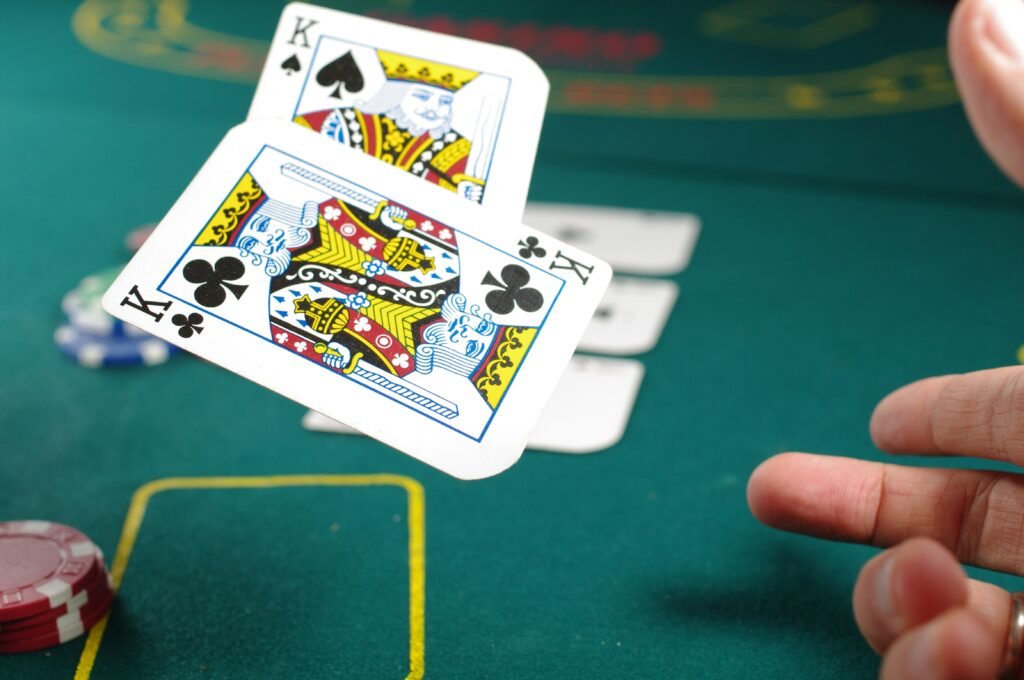Poker is a game of skill and strategy but can also be an emotional rollercoaster. Managing your emotions at the poker table is just as important as mastering the technical aspects of the game, if not more so. Whether you’re playing online or live poker, you need to stay on top of your mental state to maximize your profits and minimize losses.
This article will discuss techniques for managing your mental poker game in both live and online play. We will explore how different approaches can help you maintain focus, control tilt, and manage stress while playing poker.

With these strategies in place, you’ll be better equipped to make strong decisions throughout each session, whether you play poker online or live play.
Understanding How Different Approaches Can Help You Maintain Focus
Many poker players don’t consider how different approaches can help focus their game. However, every poker game will have moments that require concentration, and players must be prepared for them.
One approach to staying focused is to look for certain cues in the table, such as betting patterns, body language, and other behaviors that indicate either a strong or weak hand. Another approach is to maintain control of your emotions, take your time on decisions, not throw away chips, and have patience when facing difficult situations.
Finally, evaluating past game experiences of yourself or others earned from various games can also provide invaluable insights on maintaining one’s focus when playing poker. Using these various approaches, a poker player has more tools in their arsenal to stay concentrated while playing, but they must remember it is still a long road ahead if they aim for success.
Controlling Tilt and Managing Stress at the Table
Effective tilt control and stress management are essential skills for any serious poker player, as losing a big pot, taking a bad beat, or going on a long downswing can bring about strong negative feelings that can climax in wild emotional outbursts. The key is to remain composed during these periods of emotional volatility and find ways to recover quickly and maintain focus.
This might include breathing exercises, walking away from the table, or engaging in conversation with opponents while keeping it light and friendly. By developing sound strategies for mitigating tilt-inducing moments at the table, players can maintain composure and help ensure their long-term success.
Strategies for Staying on Top of Your Mental State
Taking time to focus on your mental state while playing poker can positively impact your game. Staying on top of your mental game is essential for eliminating bad decisions and being able to think analytically when making moves.
One way to do this is to take regular breaks throughout the game, which can help clear your mind and give you a new perspective. Physical activities such as stretching or walking during these breaks can also improve concentration and provide relief after hours at the table. Additionally, it’s important to find ways to relax and refocus before playing, such as engaging in conversation with players or taking deep breaths.
By integrating small changes into your poker routine, you’ll be able to stay aware of your mental state and become a more effective player.
Maximizing Profits and Minimizing Losses with Strong Decisions
For serious poker players, success depends on making informed decisions that maximize returns and minimize losses. Taking the long view, consistent decision-making is key to understanding successful strategies and evaluating expected value over the life of a hand. Any poker player needs to have a sound grasp of probabilities regarding numbers, calculations, and educated guesses about opponents’ actions.
By strengthening both skill sets, informed decisions can be made to generate profitable outcomes. Making strong decisions will always yield better results than any combination of luck and guessing.
Making the Most Out of Each Session Regardless of Play Type
When it comes to poker, each session should be approached with an eye for optimization. Whether you prefer cash games, tournaments, or sit-and-go, goal setting and concentrating on key strategies are essential to any player’s success.
Studying your position about other players is essential when making decisions to maximize the expected value of each hand dealt. In addition, the best players find ways to apply their skills regardless of the game type they are playing by tweaking preexisting strategies found through research.
Having a plan for each session is critical no matter what type of poker you play; setting specific goals and expectations will only help guide further success during your playtime.
Conclusion
Success in poker comes from a combination of mental fortitude, skillful decision-making, and game knowledge. Taking care of your mental state and focusing on strategic decisions while playing can maximize profits while minimizing losses. Additionally, by setting specific goals before each session and researching effective strategies for different poker types, players can gain an edge and achieve their desired results. With a dedication to improving your skill set and understanding of the game, you can set yourself up for long-term success in poker.

